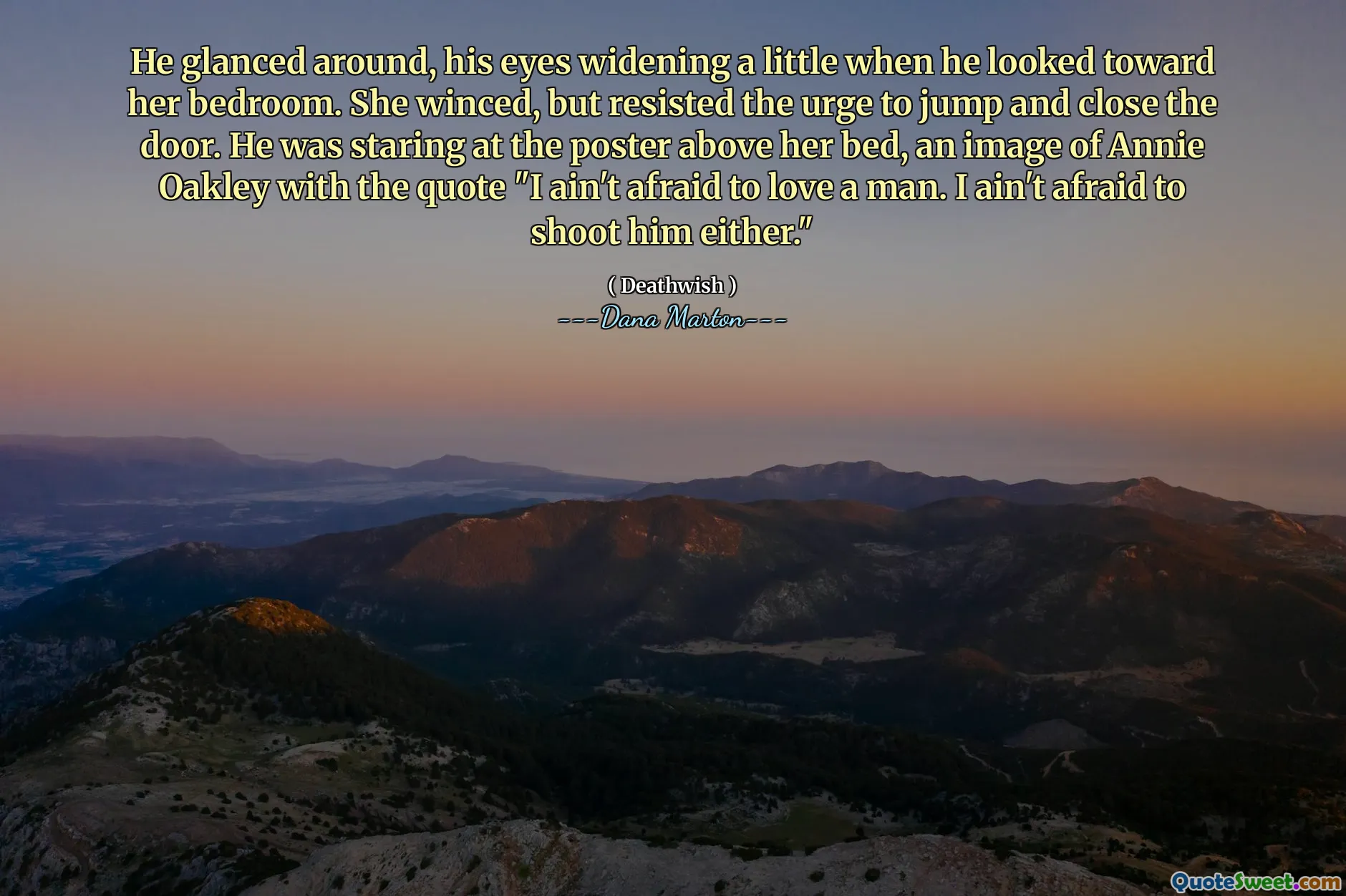
He glanced around, his eyes widening a little when he looked toward her bedroom. She winced, but resisted the urge to jump and close the door. He was staring at the poster above her bed, an image of Annie Oakley with the quote "I ain't afraid to love a man. I ain't afraid to shoot him either."
This excerpt captures a moment thick with tension and subtle interplay between vulnerability and strength. The protagonist's hesitation not to shut the door symbolizes a conscious decision to confront discomfort, revealing a deeper level of emotional resilience. The poster of Annie Oakley, a historic figure emblematic of empowerment and fierce independence, adds profound layers of meaning to this scene. Her statement, "I ain't afraid to love a man. I ain't afraid to shoot him either," beautifully blends affection with self-protection, suggesting that love does not require surrender or weakness, but rather coexistence with readiness and assertiveness. It challenges traditional gender norms about romance, implying that love can be passionate, protective, and unapologetically bold at the same time. The character's reaction—his widened eyes—speaks volumes about his recognition of this duality, possibly a discovery that love is not a one-sided vulnerability but a balanced power dynamic infused with respect and boundaries. Within the context of Dana Marton's Deathwish, which often delves into complex emotional and psychological landscapes, this quote encapsulates themes of trust, courage, and the multifaceted nature of relationships where strength and tenderness are not mutually exclusive. The scene is compelling because it involves emotional honesty paired with an undercurrent of danger or risk, reflecting real-life relationships where love is both tender and fiercely guarded. This passage leaves the reader reflecting on how personal strength shapes intimacy and how embracing these contradictions enriches our understanding of connection and self-empowerment.


